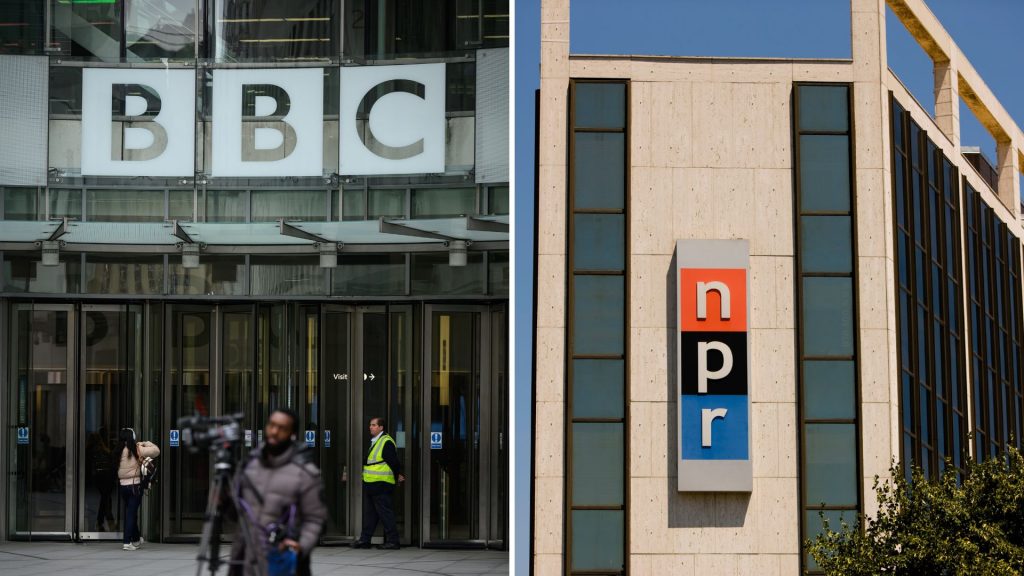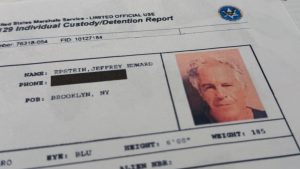BBC faces NPR-like public funding reckoning over bias accusations

The United Kingdom’s tax-funded broadcaster is wading its way through a public relations crisis over multiple examples of political bias favoring a progressive viewpoint. Like its American counterpart did this spring, the BBC will face government scrutiny that could result in a crippling public funding cut over those perceptions of bias.
The British Broadcasting Corporation was rocked by a leaked report from former independent adviser Michael Prescott, alleging the news outlet had deceptively edited President Donald Trump’s speech on Jan. 6, 2021, to make him appear to encourage supporters to storm the Capitol, and meanwhile downplayed the suffering of the Israeli people during the war in Gaza on BBC Arabic.
News of the edit prompted Trump to threaten a $1 billion lawsuit against the network.
The report, cataloging issues Prescott had repeatedly raised with BBC officials, made its way to members of Parliament. Director-General Tim Davie and head of news Deborah Turness would subsequently announce their resignations, citing “mistakes” and “damage” to the brand.
After lawmaker inquiries, BBC Chair Samir Shah wrote a letter to an MP that offered an apology amid defending the network’s coverage against Prescott’s allegations.
“I will personally ensure that the BBC continues to take the necessary actions in the future to ensure the BBC retains the trust and confidence of the public we serve,” Shah wrote in his letter to Dame Caroline Dinenage, chair of the Culture, Media and Sports Committee.
Turness later told reporters that mistakes were made, but insisted there was no institutional bias at the BBC.
Prescott was scheduled to testify before Parliament on Wednesday, but the hearing was postponed.
Funding
The scrutiny from lawmakers couldn’t come at a worse time for the BBC. The publicly funded news outlet is due to begin making its case to renew its public charter with the British government. The 10-year deal expires in 2027, and Parliament must begin reviewing whether they’ll approve a renewal.
Unbiased. Straight Facts.TM
The British Broadcasting Corporation’s first radio broadcast aired in 1922.

A local government minister under Prime Minister Keir Starmer previously said the news outlet should apologize to Trump for deceptively editing his speech. A spokesperson for Starmer later stressed support for a “strong and independent BBC” and deferred the issues back to the outlet.
The BBC funding model is driven by license fees and advertising income. According to Reuters, the outlet’s budget grew 9% to £5.9 billion ($7.9 billion) in their current fiscal year. The licensing fees are collected via their Royal Charter. Losing that for any reason would remove a substantial revenue stream.
The licensing fee costs Britons £180 ($236) annually. The network lost 300,000 household licenses in the 12 months leading up to March, costing them about £50 million ($65.7 million).
The authority for approving the agreement falls mainly on Dinenage, whom Shah wrote his apology to, and other elected UK officials.
Echoes
“I think you’ve abused the privilege that you had with receiving federal funds.”
“I don’t even recognize the station anymore. It’s not news. I feel like it’s propaganda.”
Those accusations of bias aren’t directed at the BBC. They’re comments from Republicans who questioned leaders from the Corporation for Public Broadcasting and NPR in March.
The DOGE subcommittee hearing took place just months before Trump signed an omnibus bill in July that stripped America’s public broadcaster of $500 million in federal funding. PBS announced program cancellations and layoffs a short time later. Like British conservatives, congressional Republicans and others had criticized NPR of having a bias against their side of the aisle.
The accusations of bias mirror statements from British conservatives aimed at the BBC.
“The BBC has been institutionally biased for decades,” Reform UK Party Leader Nigel Farage said in a Monday speech covered by Sky News. It was met with applause.
Starmer and others have accused conservatives of a coordinated effort against the BBC. His majority coalition’s support could be what gives the BBC a different fate than NPR.
Like the BBC, NPR is listed by multiple news bias monitors as having a left lean, if not center-left.

The Ad Fontes Interactive Media Bias chart above shows a scatter plot of stories by both organisations as being mostly left of center, but still measured as largely trustworthy.
Another parallel in the conversations over the BBC’s and NPR’s bias is the central argument that a broadcaster using taxpayer funding bears a higher responsibility to present the day’s news without favoritism.
Although Starmer’s government defended the BBC, a statement on the matter echoed a sentiment similar to one U.S. Rep. Marjorie Taylor Greene, R-Ga., said to a panel of PBS executives in March, albeit decidedly more British.
“It’s important that trust is maintained and that errors are corrected; and for any public service broadcaster, accountability and trust are key,” the spokesperson for 10 Downing St. told Unherd on Monday.
The post BBC faces NPR-like public funding reckoning over bias accusations appeared first on Straight Arrow News.





